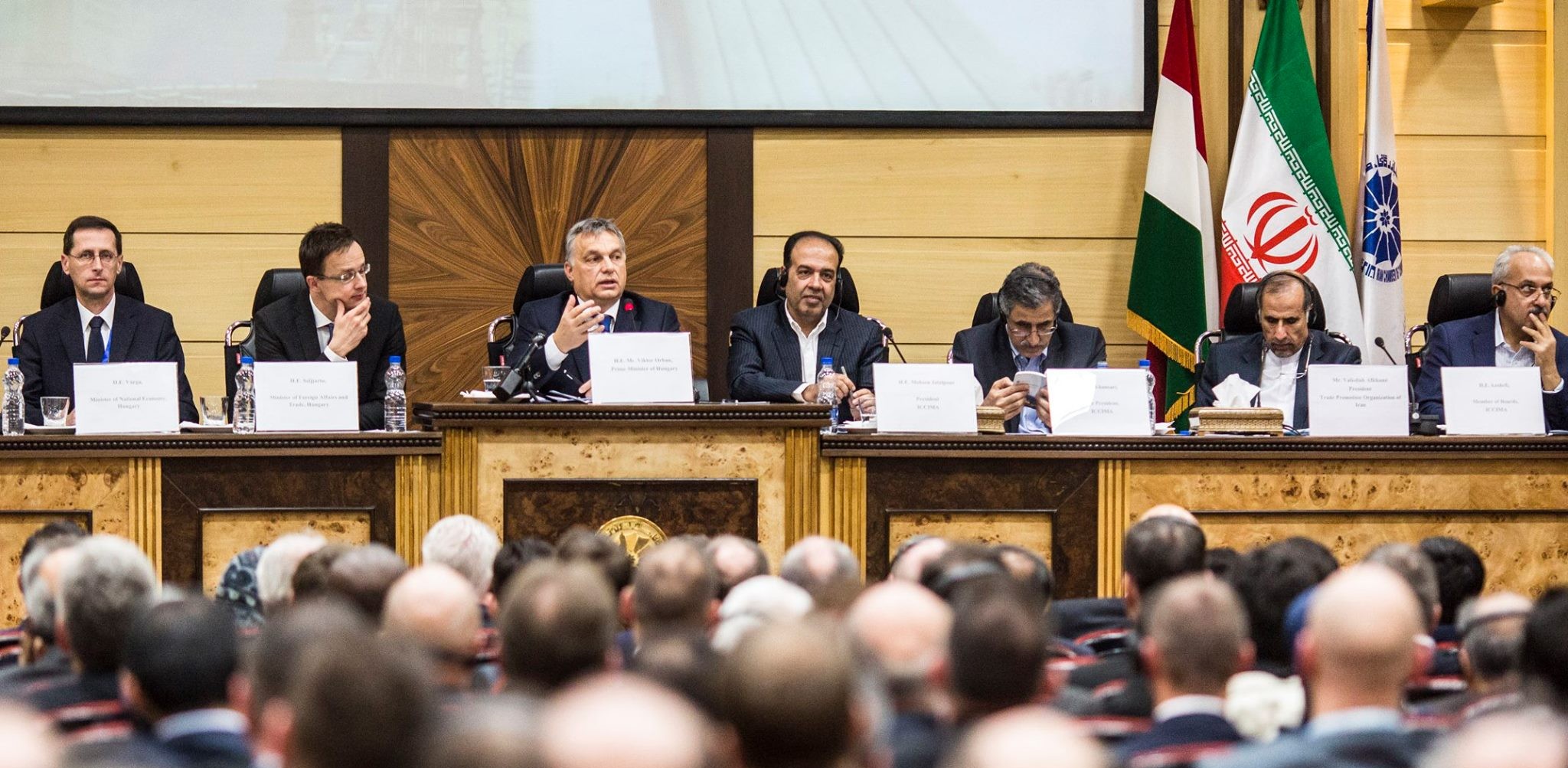
The Prime Minister also said that a Hungarian-Iranian economic joint committee is being set up, and Hungary will open a foreign trade representation in the Iranian capital.
Some 200 members of the Hungarian and Iranian business communities participated in the conference, which was held in the Iranian Chamber of Commerce and Industries. The Prime Minister, who was accompanied by five of his ministers, said that during the difficult period of sanctions, Iran had clearly built up a large reserve of energy, which could launch a great era in the country’s economic development. It is no surprise, he said, that “one after another, the delegations of Western countries which formerly argued vehemently in favour of sanctions against Iran are now pouring into the country”.
Introducing the Hungarian economy, the Prime Minister highlighted that, in contrast to Iran, Hungary has no natural resources, and given this it is “nothing short of a miracle” that “Hungary is today growing faster than the European Union average” and opportunities to launch operations in Hungary are extremely sought after worldwide. Everything in Hungary today which exists as a business opportunity “is due solely to our way of thinking, our intellectual performance and physical work”, he said.
Mr. Orbán told his audience that a Hungarian-Iranian economic joint committee is being set up, the Hungarian delegation of which will be led by Minister of Foreign Affairs and Trade Péter Szijjártó. A further decision was adopted on the establishment of a Hungarian foreign trade representation in Tehran, and as soon as the regime of sanctions against Iran “comes to an end”, funding provided by Eximbank will also be available, he said.

Among possible areas of Hungarian-Iranian economic cooperation, the Hungarian prime minister mentioned the energy industry, indicating that the Central European region’s largest oil and gas industry firm is a Hungarian company – MOL – and therefore Hungary is interested in an oil and gas industry cooperation scheme.
“We would also like to take part in the Iranian nuclear programme”, the Prime Minister continued, stating that Hungary would be more than willing to cooperate with Iranian nuclear scientists in the training of experts.
In addition to energy, Mr. Orbán mentioned the following as potential sectors of cooperation: water purification; the knowledge-based economy, including telecommunications; the pharmaceutical industry and health care; and agriculture.
He also argue for closer cooperation on education and training, and in this context told his audience that it is planned to set up the Central European centre of Tehran University in Budapest. In addition, the Hungarian government has offered one hundred state scholarship grants to Iranian students in higher education, and there are plans to develop courses in Persian language and literature at the Eötvös Loránd University of Sciences (ELTE).
Closing his speech with words of praise regarding Hungarian-Iranian cooperation, Mr. Orbán said that “The dynamism with which we have started rebuilding our relations is worthy of the two countries’ cultural traditions”.
On Tuesday, on the second day of his official visit to Iran, the Prime Minister will visit the Tehran University of Medical Sciences, where he will deliver a speech at the Semmelweis Memorial Conference, and will later attend the unveiling of a statue of Semmelweis and Avicenna. In the afternoon he will meet President Hassan Rouhani and Iran’s supreme religious and political leader Ayatollah Ali Khamenei. He will bring his visit to a close by meeting Ali Akbar Hashemi Rafsanjani, Chairman of the Expediency Discernment Council.
